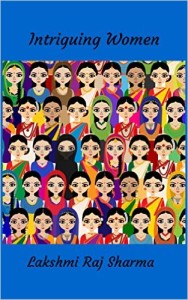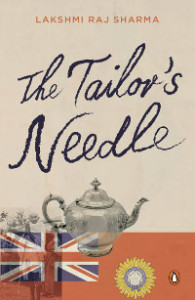Finding Your Voice in Fiction
Finding your voice in fiction is no easy matter. Your very own voice becomes visible when you are connected with your subconscious mind. It is an inner voice which results from a number of factors, the chief of which I consider to be a state in which the author is cut off from the world mentally. The presence of others will normally take an author away from reaching the state when he is in touch with his innermost being. For a poet, dramatist or novelist, there are flashes or glimpses of that inner vision in which a realization dawns or an idea comes up pointing to some intrinsic reality. In fiction, particularly in a novel, it would seem much more difficult to continue writing from a flash, the duration of which may never be more than a few seconds. In writing a novel, therefore, the author needs to depend on more flashes than one, though the main plot should normally settle into the mind in a few seconds only. The subplots or other divisions come later from other flashes. Even nonfiction has the same path to take. But in this kind of writing the element of inner vision can be much lesser as it generally needs to be tied more closely to the externally visible and factual world. When I wrote my first novel, THE TAILOR’S NEEDLE, I knew in a few seconds what the novel was going to be. But turns and twists in the plot resulted from a few more flashes. The flashes in short stories are naturally fewer.

Of course, there are writers who write without any flashes; almost entirely from the mind. They plan novels more consciously with their intellects, intuition playing a very small role for them. But wherever there is fiction, there will tend to be an inward movement in the writer that digs out a revelation, an image or an idea and arranges it in its rightful place in the text. Writers who are too particular about the use of language, grammar, and idiomatic expression will naturally not be that inward. They will go more towards society and its ways because language is a social institution. For the inward writer, new linguistic structures or word combinations could seem appropriate for the desired result. Sometimes, they may need to even coin new words or change syntactical structures to match their inner experiences. But always it is the voice which is a window into the inner being or subconscious of a writer. The voice is very largely made felt through metaphors that also spring from inner resources. It is also felt in the rhythms of the sentences or lines used.
To be able to notice the voice of a fiction writer is to virtually go into the domain of the extra-rational. There are no rational paths that lead there. The voice of a fiction writer comes from the union of his subconscious with his rational self. This connection and “inner sight” (the word ‘insight’ seems to mean something similar) is generally missing in a poem, short story, novel or any piece of writing that has been conceived by the conscious mind.
The deeper literary authors have shown evidence of this seemingly extra-rational domain, as reflected through their voices. It is sometimes believed that all literature reflects society. This is could be true but not always. For when society is consciously reflected, because there is an attempt to change it, the writing may be done largely at the conscious level even though there will be lapses into the subconscious even there. Sometimes the voice of the author will largely be absent from such writing. There can be wit, humor, satire and such elements in the writing but the author’s soul will rarely guide such writing. Where the voice of an author is quite evident, there the author will be speaking from his or her whole being. The eternal human desire to peer into the more than rational is met by the reader who can reach that domain with the help of the voice of an author.
- How Authors Can Sell More Books - April 11, 2018
- Pure Fiction - December 13, 2017
- I Think I Know - December 12, 2017



Many of our great writers are highly intuitive. Their intuition allows them to delve deep into the lives and experiences of the masses, the prospective readers. Readers naturally connect with such authors.
J.K.Rowling conceived the entire plot of Harry Porter travelling between two railway stations. The details would have been worked out subsequently but the imaginative flash created the original idea. Sir is right about the imaginative and intuitive flashes as the prime factors in the creative process.